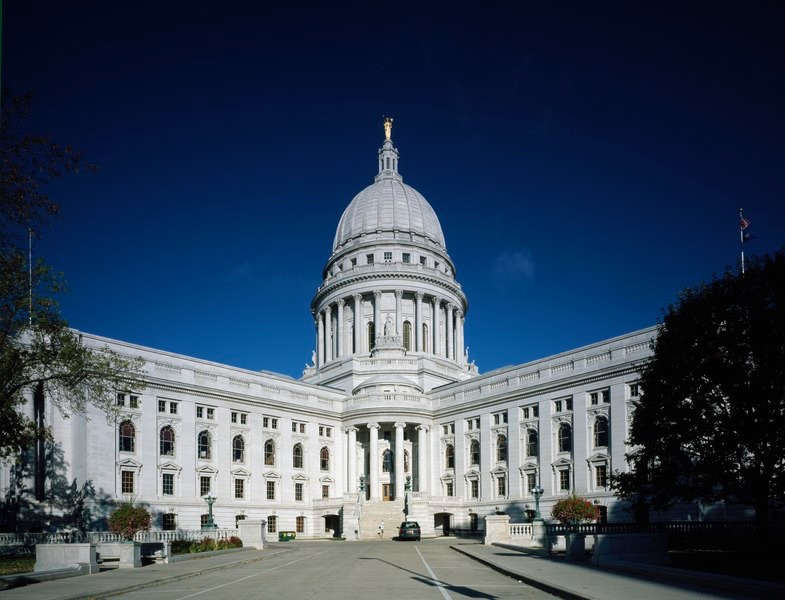
With a projected $4.4 billion in surplus revenue, Wisconsin Republicans are eager to give most of that extra cash back to the taxpayers. A new three-pronged proposal would cut $3.4 billion in taxes, in what would be the largest tax cut in the state’s history.
The most significant aspect of the plan would slash income tax rates for Wisconsin’s largest tax bracket – the middle class. Residents making between $23,930 and $263,480 will see their rates reduced by almost a full percentage point, from 6.27% to 5.3%.
That 15% rate cut translates to big savings for millions of Wisconsin families. According to the state budget office, those earning between $50,000 and $60,000 would save $172 on income taxes every year. Individuals and families will have more cash on hand to save, invest, and improve their lives.
“This is real, substantial and permanent tax relief that will forever change the state,” the MacIver Institute, a Madison-based think tank, noted in its analysis of the budget. “Not only will this tax cut keep taxpayers’ money where it should be, in their wallets, this tax cut will dramatically reduce the amount of taxpayer money available to fund state government. Let that sink in for a moment.”
The plan is also a boon to small businesses, particularly pass-through companies like sole proprietorships, LLCs, and partnerships. Since the majority of these businesses pay taxes under the individual income tax system, they would receive relief under Wisconsin Republicans’ tax plan, creating a greater incentive for entrepreneurs to do business in Wisconsin while increasing their job-creating capacity. Moreover, the proposed income tax cut would provide much-needed relief for existing small businesses that suffered under Governor Tony Evers’ pandemic lockdowns.
Homeowners also stand to benefit under the proposed tax cut, thanks to plans to lower property taxes by $647 million. For a median-priced Wisconsin home, that’s an extra $100 every year in tax savings. The cuts are a result of allocating an additional $647 million to the state’s general school aid fund, while maintaining spending caps for local K-12 districts and technical colleges. Those state funds effectively replace local property tax revenue, permitting property tax relief for Wisconsin homeowners. Reduced property taxes will also benefit renters, for whom the property tax burden is baked into their lease.
For the third component of the tax cut, legislative Republicans in Wisconsin hope to abolish the personal property tax, which businesses currently pay on equipment and furnishings. The tax was scaled back in 2017, when Republicans controlled both branches of government, but new legislation could finally axe it for good. That proposal will head to the governor’s desk as a standalone bill. If it were included as part of the broader appropriations package, Governor Evers could weaken or eliminate it with his partial veto power, which gives the governor substantial authority to modify specific components of the budget.
By killing the personal property tax in legislation separate from the budget, Republicans hope to force Evers to either accept or reject it in its entirety, rather than using a line-item veto in the budget.
The tax relief included in the budget has Wisconsin Democrats on the defensive. All four Democrats on the Joint Finance Committee voted against the legislation, pegging it as a tax cut for the rich since three-quarters of the income tax cuts would go to people earning more than $100,000. Yet the legislation would simply reduce taxes across the board in the state’s largest income tax bracket, including for most families earning between $30,000 to $40,000 a year. The vast majority of state residents will see real dollars returned to their wallets. In fact, the income tax rate would remain unchanged in the top bracket. Residents earning over $263,480 would still be taxed at 7.65%, the tenth highest rate in the country. That is something that Wisconsin legislators would do well to address at some point.
Republicans control both houses of the Wisconsin legislature. However, the budget still needs approval from Governor Evers, who vetoed a $250 million tax cut last year. It’s unclear whether the Republican proposal will become law, but next year’s elections are quickly approaching. Maybe some Democrats – and perhaps even the governor – will end up supporting a long-overdue tax relief package that benefits millions of middle-class Wisconsinites.

